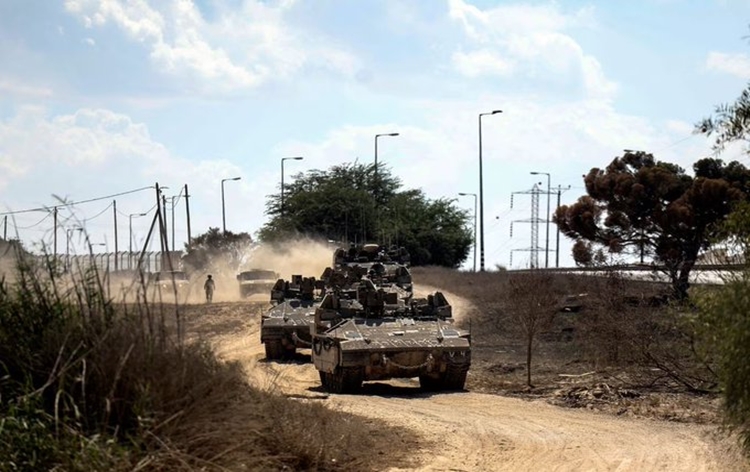Israel prepared to defend itself on Thursday at the top U.N. court against accusations of genocide in Gaza. The International Court of Justice in The Hague, also known as the World Court, was set to hold hearings on Thursday and Friday in response to a case brought by South Africa in December, claiming that Israel’s actions against Hamas militants in Gaza violate the 1948 Genocide Convention.
Israeli government spokesperson Eylon Levy stated on Wednesday: “Tomorrow, the State of Israel will appear before the International Court of Justice to refute South Africa’s claims, as Pretoria provides political and legal cover to the Hamas regime.”
The hearings will specifically address South Africa’s request for emergency measures ordering Israel to suspend military actions in Gaza while the court examines the merits of the case—a process that could extend over years. Colombia and Brazil expressed their support for South Africa late Wednesday.
Israel initiated its offensive after Hamas fighters conducted a cross-border rampage on Oct. 7, resulting in Israel claiming 1,200 deaths and 240 abductions. Since then, Israeli forces have caused extensive damage to Gaza, displacing nearly all of its 2.3 million people and leading to a humanitarian crisis, with over 23,000 Palestinians reported dead.
On the eve of the hearings, Prime Minister Benjamin Netanyahu publicly opposed calls from some right-wing ministers, including Finance Minister Bezalel Smotrich and National Security Minister Itamar Ben-Gvir, to permanently occupy Gaza. While this stance has been Israel’s official policy, Netanyahu’s previous comments on the permanent occupation of Gaza have been inconsistent.
“I want to make a few points absolutely clear: Israel has no intention of permanently occupying Gaza or displacing its civilian population,” Netanyahu emphasized on the social media platform X, possibly timing his comments ahead of the ICJ hearings. He added, “Israel is fighting Hamas terrorists, not the Palestinian population, and we are doing so in full compliance with international law.”
Jordan and Egypt warned against any Israeli reoccupation of the Gaza Strip, appealing for uprooted residents to be allowed to return to their homes.
U.N. DEMANDS HOUTHIS STOP SHIP ATTACKS
On the ground in Gaza, the fighting continued intensely, with Israeli strikes in southern and central Gaza escalating despite pledges to shift to a more targeted campaign. U.S. and British warships in the Red Sea repelled a significant attack from Yemen’s Houthi movement, which claims to support Gaza. The U.N. Security Council approved a resolution demanding an immediate cessation of Houthi shipping attacks.
In a late Wednesday briefing, Israel’s chief military spokesperson Rear Admiral Daniel Hagari mentioned a focus on Khan Younis and refugee camps in the center of the strip. The World Health Organization canceled a planned medical aid mission to Gaza due to security concerns, and there were reports of casualties, including Palestinian Red Crescent staff and children, in Israeli airstrikes.
U.S. Secretary of State Antony Blinken, during his fourth trip to the region since the war began, expressed support for a Palestinian state and discussed efforts to protect and aid civilians in Gaza during his visit to Ramallah in the Israeli-occupied West Bank. Palestinian Authority President Mahmoud Abbas emphasized to Blinken that no Palestinians should be displaced from Gaza or the West Bank.
(Inputs from Reuters)














